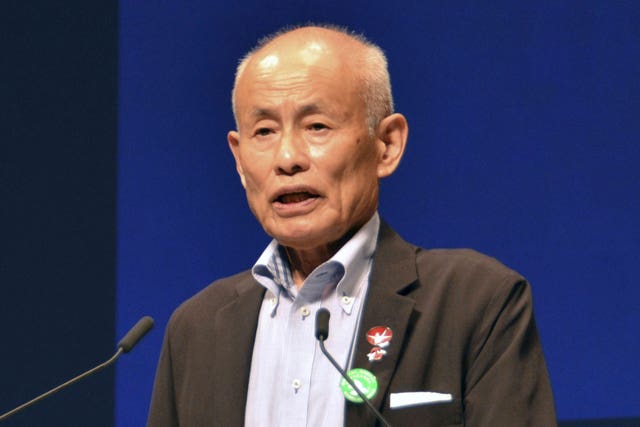The Nobel Peace Prize was awarded on Friday to Nihon Hidankyo, a Japanese organisation of survivors of the US atomic bombings of Hiroshima and Nagasaki, for its activism against nuclear weapons.
Jorgen Watne Frydnes, chair of the Norwegian Nobel Committee, said the award was made as the “taboo against the use of nuclear weapon is under pressure”.
He said the Nobel committee “wishes to honour all survivors who, despite physical suffering and painful memories, have chosen to use their costly experience to cultivate hope and engagement for peace”.
Efforts to eradicate nuclear weapons have been honoured in the past by the Nobel committee.
This year’s prize was awarded against a backdrop of devastating conflicts raging in the world, notably in the Middle East, Ukraine and Sudan.
Alfred Nobel stated in his will that the prize should be awarded for “the most or the best work for fraternity between nations, for the abolition or reduction of standing armies and for the holding and promotion of peace congresses”.
Last year’s prize went to jailed Iranian activist Narges Mohammadi for her advocacy of women’s rights and democracy, and against the death penalty.

In a year of conflict, there had been some speculation before the announcement that the Norwegian Nobel Committee that decides on the winner would opt not to award a prize at all this year.
The Nobel prizes carry a cash award of 11 million Swedish kronor (£770,000).
Unlike the other Nobel prizes that are selected and announced in Stockholm, founder Alfred Nobel decreed the peace prize be decided and awarded in Oslo by the five-member Norwegian Nobel Committee.
The Nobel season ends on Monday with the announcement of the winner of the economics prize, formally known as the Bank of Sweden Prize in Economic Sciences in Memory of Alfred Nobel.






